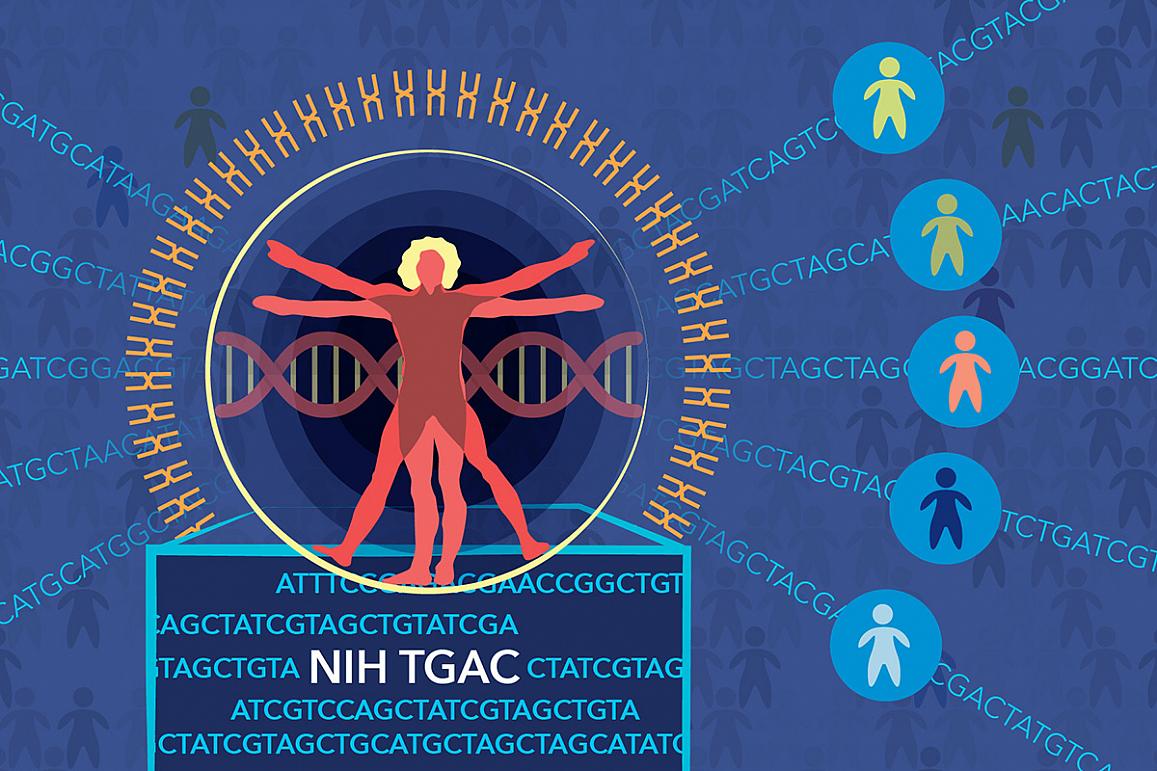NIH pilot project will match researchers to genes, gene variants of interest
Researchers can predict variants’ impact, recall participants to test predictions
Databases such as the 1000 Genomes Project and the Exome Aggregation Consortium (ExAC) harbor large numbers of genotypes (an individual’s collection of genes). Until now, it has been difficult for researchers to re-contact individuals with genotypes of interest and investigate the health consequences of their genes and gene variants. To address this challenge, National Institutes of Health and Inova Health System researchers are launching The Genomic Ascertainment Cohort (TGAC), a two-year pilot project that will allow them to recall genotyped people and examine the genes and gene variants’ influence on their phenotypes, an individual’s observable traits, such as height, eye color or blood type.
The project reverses a long-standing research paradigm of examining a person’s traits or symptoms and then searching for genes or gene variants that cause or contribute to them. NIH will establish a new database of 10,000 human genomes and exomes, the 1-2 percent of the genome that contains protein-coding genes. Once the database is established, NIH and Inova researchers will predict conditions that specific genes or gene variants might produce and test those predictions by re-examining individuals who donated their DNA sequence information to the database. TGAC will be based in the Washington, D.C., area and only people who’ve expressly given consent to be re-contacted will participate in TGAC.
“We’re trying to advance science in a new, creative and slightly radical way,” said Leslie Biesecker, M.D., TGAC co-organizer and chief of the Medical Genomics and Metabolic Genetics Branch at NIH’s National Human Genome Research Institute (NHGRI). “Our goal is to determine what genes and gene variants do. We’re especially interested in using this as a platform to test our ability to predict phenotype from genotype – one of the key underpinnings of predictive genomic medicine.” NHGRI will host the database and administer the program.
This page was last updated on Friday, January 21, 2022
